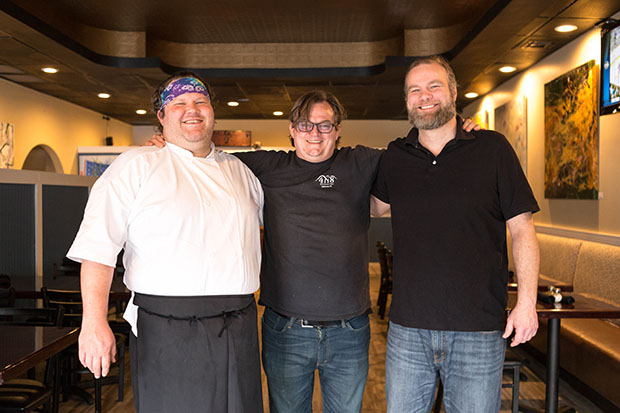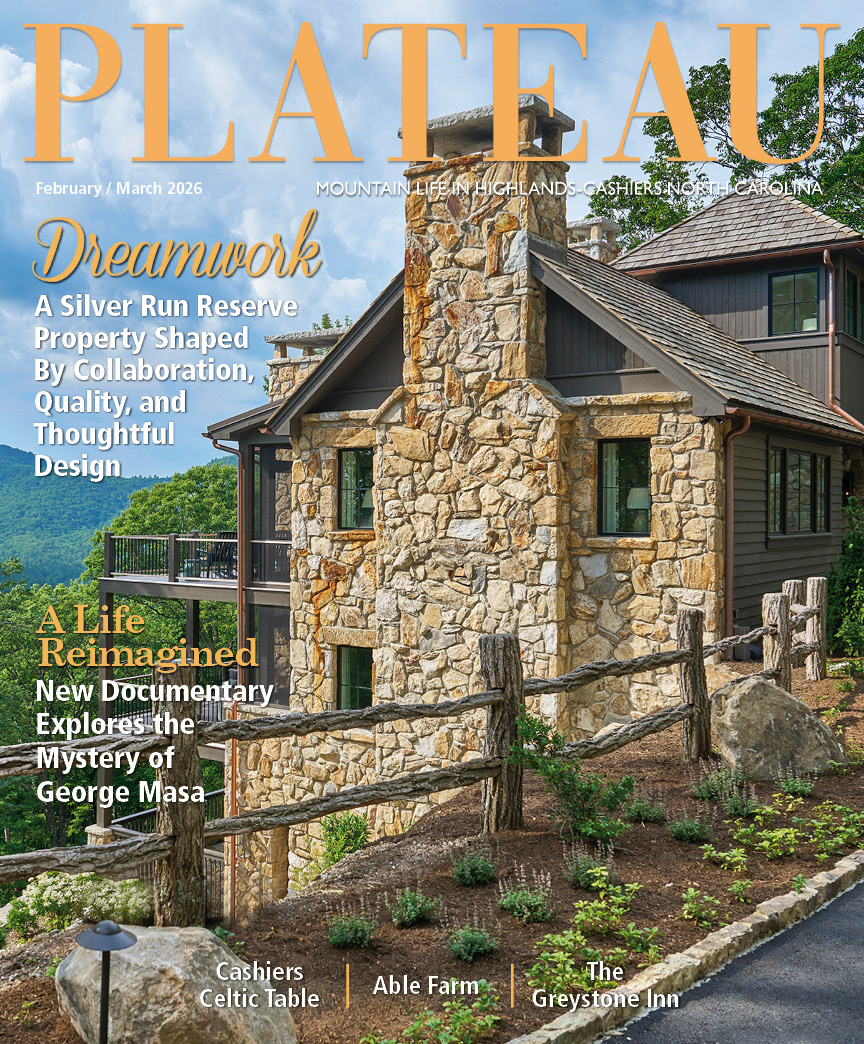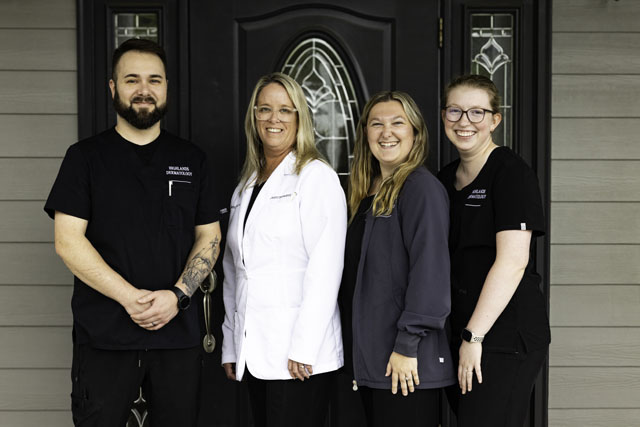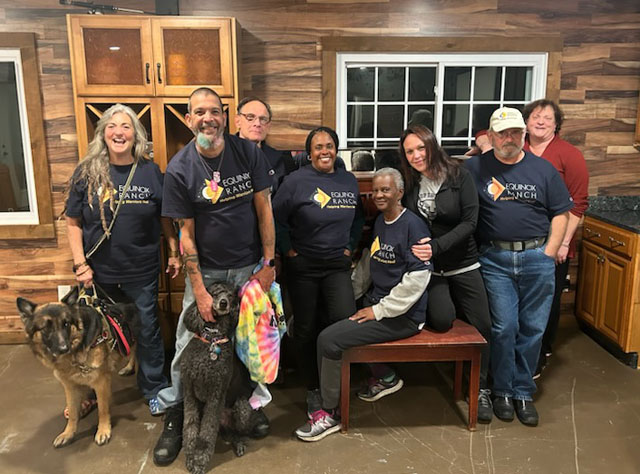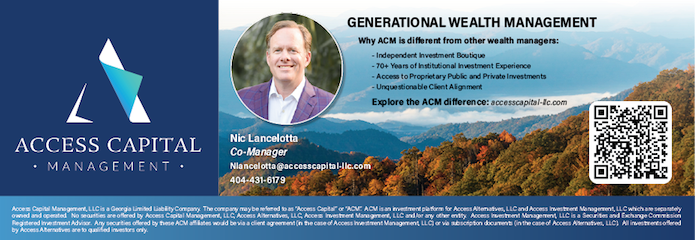Empathy in Awareness
03 Apr 2020
The complexity and nuances of Autism make knowledge all the more critical
By SYBIL FIX
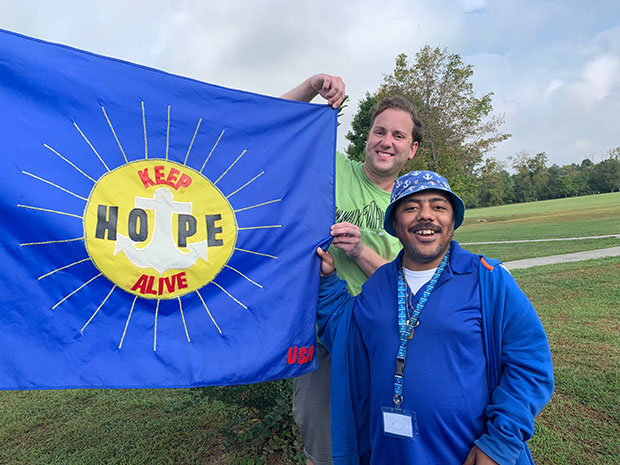
Sarah Caldwell was ten years old, a student in the fourth grade in Fairview, NC, when she was diagnosed with autism. An otherwise happy and intelligent child, she struggled to express her feelings without a rush of anxiety, words and emotions tripping her up and stealing her calm away.
She began receiving help to cope with anxiety, to manage and give order to her thoughts, to stay on topic and on schedule, and to express her feelings in a modulated give-and-take. Over the years, this help has allowed Sarah, now 19, to be high-functioning both in her inner life and activities; to graduate from high school and to harness her talents as a writer, budding screenplay director, and a horse-rider.
On occasion of Autism Awareness Month, Sarah has a special message for us all: that autism does not define her as a human being, nor represent a beginning or an end to anything else that she is.
“Just because you have autism doesn’t mean you can’t do great things,” she said. “Just because I have autism, that does not mean I am not awesome.”
Awareness Is Knowledge
Autism awareness is an effort to promote acceptance and understanding of autism as well as to further the support of people with autism through services and programs to better their functioning and lives.
Autism Spectrum Disorder is a lifelong developmental disability that normally manifests during childhood and is identified by a set of behaviors that can compromise or challenge social interaction, communication, verbal expression, and management of emotions to varying degrees. Indeed, it is defined now as a “spectrum condition” because the behaviors manifest on a spectrum of severity. Some people with ASD learn differently; some need a lot of help in their daily lives; others less.
Currently, about 1 in 59 children is identified with ASD, according to estimates from the Center for Disease Control’s Autism and Developmental Disabilities Monitoring Network, up from 1 in 150 in 2000. More than 3.5 million people in the US live with the disorder, which, in spite of its widespread impact, is still little understood.
One thing, however, is clear: Autism affects people in dramatically different ways, and part of the awareness of the disorder is awareness of its nuance.
“Being a spectrum, there are plenty of people with autism who you would never be aware have autism at all,” said Michael LePage, western regional director of the Autism Society of North Carolina, which provides services to some 20,000 individuals with autism, including Sarah. “It is a very diverse group of people, and an interesting group of people,” LePage said.
Services Change Everything
Because autism affects people for a lifetime, early diagnosis and proper treatment can greatly improve the quality of life of individuals affected by it. Early intervention services can positively change the development of a child with autism; hence, access to services is essential as is continued research into the disorder, said Jody Miller, community engagement coordinator for the Region A Partnership for Children and the Family Support Network of Region A, in Sylva.
Miller provides support—in many forms—to individuals and families raising children with a special need, be it psychological, medical, or familial. She works and has worked with hundreds of individuals with autism and stresses the importance of not judging people with autism—parents or individuals.
Both school services and employment services, specifically targeted to function level, and possibly lasting a lifetime, are fundamental to maximize the potential and the wellbeing of those with autism, said Miller.
“Everyone with autism is going to present in a different way. Sometimes it can be something that you can’t really even see,” Miller said. “With parents who may have a child with autism, it is important to get an evaluation and a diagnosis to figure out the path. It’s important to identify, so they can get the help they need to make it through life, to go to school, to go to college possibly, to succeed in life, to contribute.”
Routine and Community
The Autism Society of North Carolina helps match families of individuals with autism with available treatment services; it also provides activities to bring together individuals with autism among themselves as well as the community at large. LePage said it’s essential to ensure continued structure and routine to adults with autism who were accustomed to and benefited from those elements during their school years. Weekly running and walking groups, for example, and cookouts and bowling—activities in which Sarah partakes enthusiastically. There are programs linking individuals with autism to potential employers in their communities, as well as a social network group, Autistics United, that is run by individuals with autism.
Sarah works five days a week with staff care professional Debbi Mathis on such skills as coping with anxiety, managing conversations in a more orderly manner, and scheduling. This help has allowed her to graduate from the Franklin School of Innovation in Asheville, to excel as a budding playwright and play director, and to shine as a volunteer storytime leader for pre-school children at the library. Now, her immediate goal is to get a job to afford her own horse—she has been a rider since childhood. But Sarah has a flair for drama and a pronounced funny streak; she loves stories, puppets, playacting, TV shows. Who knows where her future will take her.
“I can see her being on a team that writes sitcoms,” said Mathis. “She comes up with things that are hilarious and that no one else would think of.”
Perhaps one of the greatest goals of Autism Awareness Month is to aspire to a more compassionate, inclusive society less inclined to prejudge someone who is “different,” said LePage. “Everyone has something to contribute, so if you see someone who is learning differently or processing information differently, let them do that … Be aware that everyone is different, and every person with autism is a unique person.”


